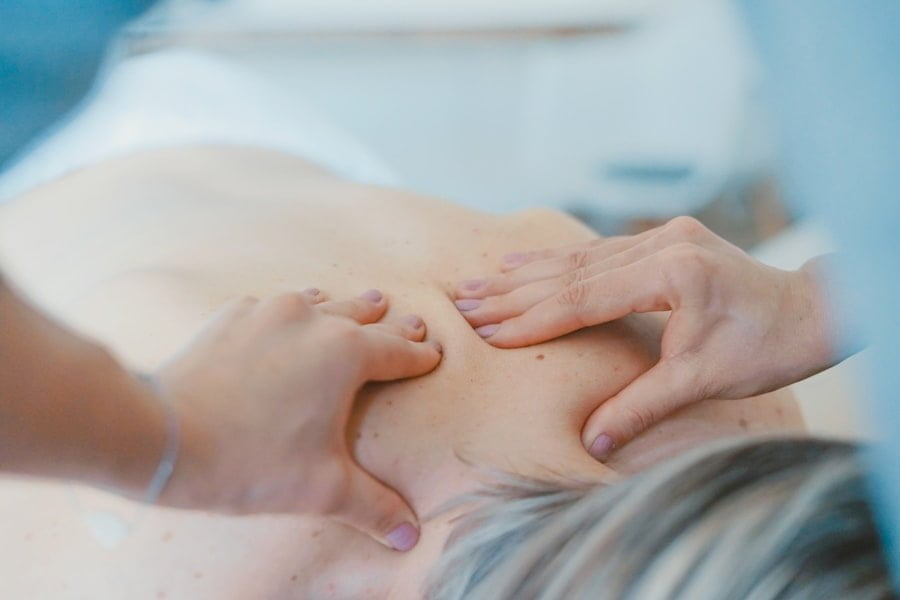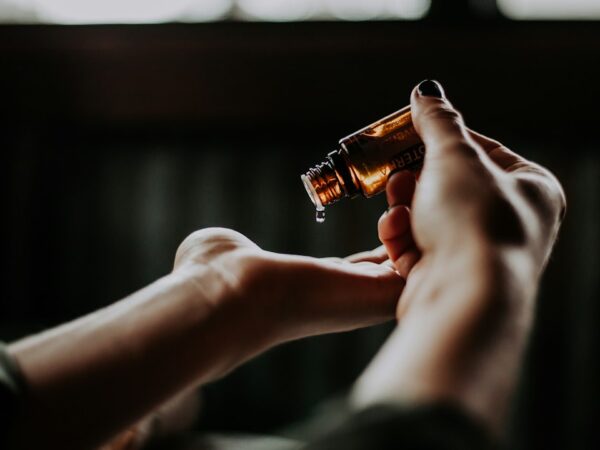
From the Inside Out: How Physical Health Impacts Skin Health
Maintaining good physical health is essential for overall well-being. When we think about physical health, we often focus on factors such as exercise and nutrition. However, it is important to recognize that physical health and skin health are interconnected. Our skin is the largest organ in our body and plays a crucial role in protecting us from external factors. Therefore, taking care of our physical health is not only important for our internal organs but also for the health and appearance of our skin.
Key Takeaways
- Good nutrition is essential for healthy skin, with a focus on foods rich in vitamins A, C, and E, as well as omega-3 fatty acids.
- Staying hydrated is crucial for maintaining healthy skin, as it helps to flush out toxins and keep skin cells plump and moisturized.
- Regular exercise can improve skin health by increasing blood flow and promoting collagen production, but it’s important to protect skin from sun damage during outdoor activities.
- Getting enough sleep is essential for healthy skin, as it allows the body to repair and regenerate skin cells overnight.
- Managing stress through techniques like meditation, yoga, or deep breathing can help to reduce inflammation and promote healthy skin.
The Role of Nutrition in Promoting Skin Health
A balanced diet is crucial for healthy skin. Certain nutrients have been found to be particularly beneficial for skin health. For example, vitamin C is essential for collagen production, which helps maintain the elasticity and firmness of the skin. Foods rich in vitamin C include citrus fruits, strawberries, and bell peppers.
Omega-3 fatty acids are another important nutrient for skin health. They help reduce inflammation and keep the skin moisturized. Foods such as fatty fish (salmon, mackerel), walnuts, and flaxseeds are excellent sources of omega-3 fatty acids.
In addition to these specific nutrients, a diet rich in fruits, vegetables, whole grains, and lean proteins provides the necessary vitamins, minerals, and antioxidants that support overall skin health.
The Importance of Hydration for Healthy Skin
Hydration plays a vital role in maintaining healthy skin. When we are dehydrated, our skin becomes dry, dull, and prone to wrinkles. Drinking an adequate amount of water throughout the day is essential for optimal skin health.
The recommended daily water intake varies depending on factors such as age, sex, and activity level. However, a general guideline is to drink at least eight glasses (64 ounces) of water per day. It is important to note that this recommendation may need to be adjusted based on individual needs and circumstances.
In addition to drinking water, there are other ways to stay hydrated and promote skin health. Consuming hydrating foods such as watermelon, cucumbers, and oranges can contribute to overall hydration. Using a moisturizer regularly can also help lock in moisture and keep the skin hydrated.
Exercise and Its Impact on Skin Health
| Exercise and Its Impact on Skin Health |
|---|
| Increased blood flow to the skin, which can improve skin tone and texture |
| Reduced stress levels, which can lead to fewer breakouts and a more radiant complexion |
| Improved circulation, which can help deliver nutrients and oxygen to the skin |
| Sweating can help unclog pores and remove toxins from the skin |
| Regular exercise can help maintain a healthy weight, which can reduce the risk of skin conditions such as stretch marks and cellulite |
Exercise is not only beneficial for our physical health but also for our skin health. When we exercise, our blood circulation improves, delivering oxygen and nutrients to the skin cells. This increased blood flow helps nourish the skin and promote a healthy complexion.
Regular exercise also helps reduce inflammation in the body, which can contribute to skin conditions such as acne and eczema. Additionally, exercise promotes the production of endorphins, which are known as “feel-good” hormones. These hormones help reduce stress levels, which can have a positive impact on skin health.
Certain types of exercises are particularly beneficial for skin health. Yoga, for example, helps improve blood circulation and reduces stress levels. Cardiovascular exercises such as running or cycling also promote blood flow and overall well-being.
After exercising, it is important to shower and cleanse the skin to remove sweat and bacteria that may have accumulated on the surface. This helps prevent clogged pores and breakouts.
The Relationship between Sleep and Skin Health
Getting enough sleep is crucial for overall health and well-being, including skin health. During sleep, our body goes into repair mode, producing collagen which helps maintain the elasticity and firmness of the skin. Lack of sleep can lead to decreased collagen production, resulting in dullness and premature aging of the skin.
The recommended amount of sleep for optimal skin health varies depending on age. However, most adults require between seven to nine hours of sleep per night. Establishing a bedtime routine can help improve sleep quality. This may include activities such as reading a book, taking a warm bath, or practicing relaxation techniques.
Avoiding screens before bed is also important, as the blue light emitted by electronic devices can interfere with sleep patterns. Creating a calm and comfortable sleep environment, such as keeping the room dark and cool, can also contribute to better sleep quality.
Stress Management Techniques for Better Skin Health

Stress can have a negative impact on skin health. It can trigger or worsen skin conditions such as acne, eczema, and psoriasis. Additionally, stress can accelerate the aging process and lead to dullness and wrinkles.
Managing stress is crucial for both overall well-being and skin health. There are various techniques that can help reduce stress levels. Meditation and deep breathing exercises are effective ways to calm the mind and relax the body. Engaging in activities that bring joy and relaxation, such as hobbies or spending time in nature, can also help manage stress.
Self-care is an important aspect of stress management. Taking time for oneself, whether it’s through practicing mindfulness, indulging in a relaxing bath, or getting a massage, can help reduce stress levels and promote overall well-being.
The Effects of Smoking and Alcohol on Skin Health
Smoking and excessive alcohol consumption have detrimental effects on skin health. Smoking damages collagen and elastin fibers in the skin, leading to wrinkles and premature aging. It also reduces blood flow to the skin, resulting in a dull complexion.
Alcohol dehydrates the body, including the skin, leading to dryness and flakiness. It can also dilate blood vessels in the face, causing redness and broken capillaries.
Quitting smoking is one of the best things you can do for your skin health. There are various resources available to help individuals quit smoking, such as support groups, counseling, and nicotine replacement therapy.
Reducing alcohol consumption is also important for skin health. Moderation is key, and it is recommended to limit alcohol intake to one drink per day for women and two drinks per day for men. Avoiding secondhand smoke is equally important, as it can also have negative effects on skin health.
The Benefits of Sun Protection for Skin Health
Sun exposure is one of the leading causes of skin damage. It can lead to sunburn, premature aging, and an increased risk of skin cancer. Protecting the skin from the sun is crucial for maintaining healthy skin.
Wearing sunscreen with a broad-spectrum SPF of 30 or higher is essential. It should be applied generously and reapplied every two hours, or more frequently if sweating or swimming. Seeking shade during peak sun hours (10 am to 4 pm) and wearing protective clothing, such as hats and sunglasses, can also help protect the skin from harmful UV rays.
It is important to note that sun protection should be practiced year-round, even on cloudy days or during the winter months when the sun may not be as intense. UV rays can still penetrate through clouds and cause damage to the skin.
Skin Health and Hormonal Imbalances
Hormonal imbalances can have a significant impact on skin health. For example, an increase in androgen hormones can lead to acne breakouts, while a decrease in estrogen hormones can result in dryness and thinning of the skin.
Managing hormonal imbalances often requires medical intervention. This may involve hormone replacement therapy or lifestyle changes such as stress management, regular exercise, and a balanced diet.
It is important to seek medical advice if hormonal imbalances are affecting your skin health. A healthcare professional can provide guidance and recommend appropriate treatment options based on your specific needs.
Medical Conditions that Affect Skin Health
Certain medical conditions can affect skin health. Eczema, psoriasis, rosacea, and acne are examples of common skin conditions that can have a significant impact on overall well-being.
Managing these conditions often requires a combination of medication and lifestyle changes. For example, topical creams, oral medications, or light therapy may be prescribed to treat eczema or psoriasis. Avoiding triggers, such as certain foods or environmental factors, can also help manage these conditions.
It is important to seek medical advice if you are experiencing any skin concerns. A dermatologist or healthcare professional can provide an accurate diagnosis and recommend appropriate treatment options.
Maintaining good physical health is essential for optimal skin health. Nutrition, hydration, exercise, sleep, stress management, and sun protection all play crucial roles in promoting healthy skin. Additionally, avoiding smoking and excessive alcohol consumption, managing hormonal imbalances, and seeking medical advice for any skin concerns are important steps towards maintaining overall well-being.
By prioritizing our physical health and adopting healthy lifestyle habits, we can support the health and appearance of our skin. Remember that everyone’s skin is unique, and it may take time to find the right balance of factors that work best for you. It is always recommended to consult with a healthcare professional or dermatologist for personalized advice and guidance.
FAQs
What is physical health?
Physical health refers to the overall well-being of an individual’s body, including their ability to perform daily activities, maintain a healthy weight, and avoid illness or injury.
What is skin health?
Skin health refers to the condition of an individual’s skin, including its appearance, texture, and ability to protect the body from external factors such as UV radiation and bacteria.
How are physical health and skin health related?
Physical health and skin health are closely related, as the condition of an individual’s body can have a significant impact on the health of their skin. For example, a healthy diet and regular exercise can improve skin health by promoting circulation and reducing inflammation.
What are some common skin conditions related to physical health?
Some common skin conditions related to physical health include acne, eczema, psoriasis, and rosacea. These conditions can be caused by a variety of factors, including stress, hormonal imbalances, and poor nutrition.
What are some ways to improve both physical health and skin health?
Some ways to improve both physical health and skin health include eating a balanced diet, getting regular exercise, staying hydrated, getting enough sleep, and avoiding smoking and excessive alcohol consumption. Additionally, using sunscreen and practicing good skincare habits can help protect and improve the health of the skin.


















